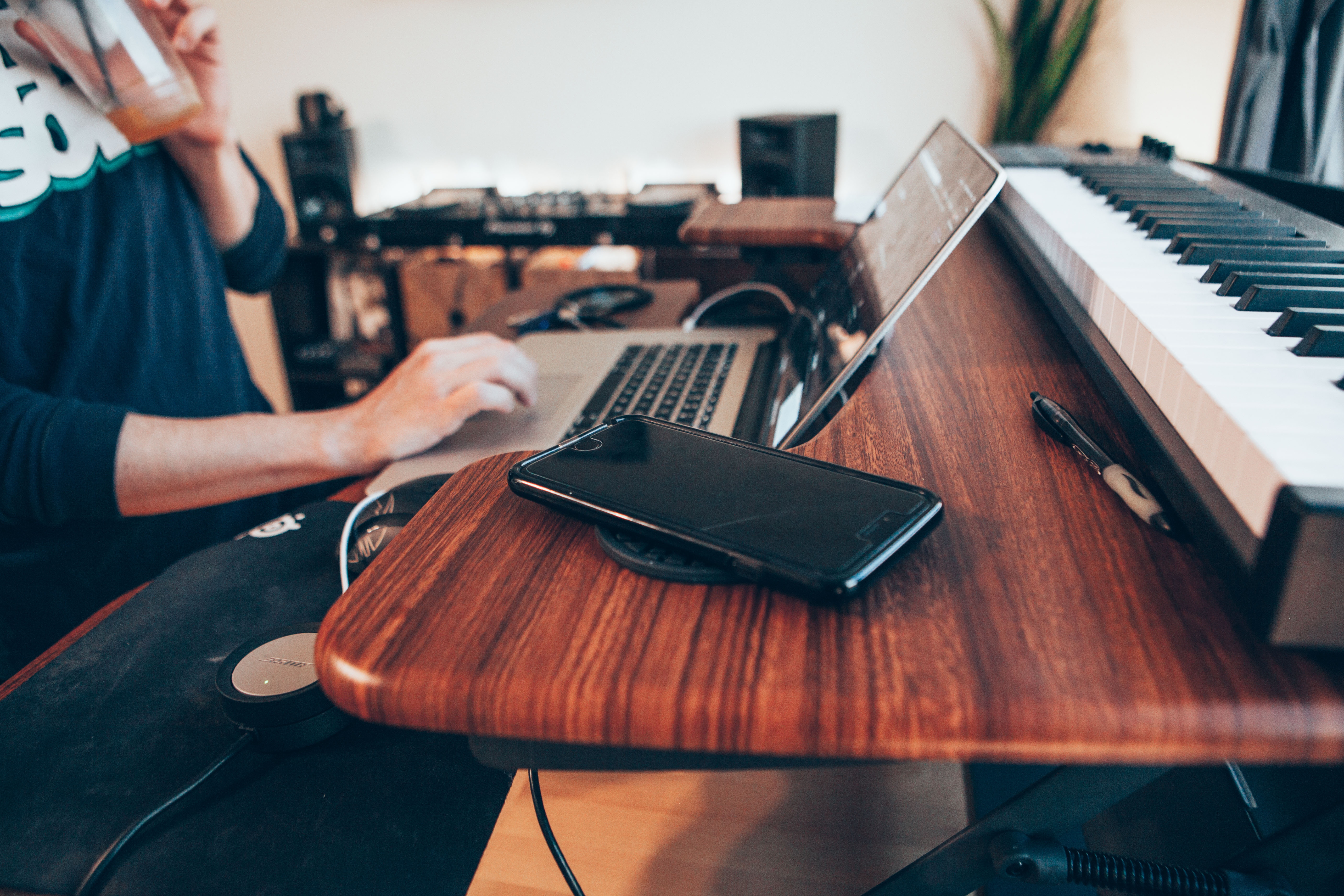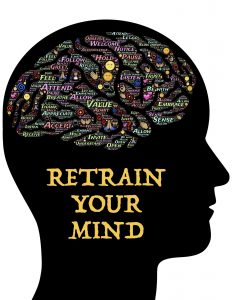
In part 1, we explored various causes of writer’s block and outlined a strategic seven-step process to address it. In this post, we’ll look at tactical approaches to help you conquer the primary causes of writer’s block. Follow just a few, and you will overcome your songwriter’s block.
As we discussed in part 1, songwriters block starts in your head. Fears, anxieties, negative beliefs, lack of know-how and experience and environmental realities can all cause creative problems. Unfortunately, when we get stuck, we tend to do more - or less - of the same thing, with predictable results. (Or, more accurately, a lack of results!) In any case, we continue to think inside the same very tiny box. Since doing more (or less) of the same thing leads to similar outcomes, the key to overcoming songwriters block is to do something completely different. Whatever the cause, there is something you can do to overcome your songwriter's block.
Below are a variety of tactical approaches you can try.
Unlocking Songwriter's Block
Creative
- Outline. There are several different strategies for outlining. Pat Pattison teaches the "Three Boxes" approach, in which each ‘box’ is one section of the song. Identify one key piece of (new) information each section of the song might convey. How will each verse set up the hook or chorus? What contrasting information does the hook suggest that could become a bridge or could highlight the chorus differently?
- Answer the questions ‘Who, What, Where, When and Why.’ Each of these questions is important, but the last is the most important. Why should we, your listeners, care about this song? Why is the singer singing it? In other words, what is the point of the song? Consider the hook and ask yourself what questions the hook suggests.
- Take a break. Sometimes the brain simply needs a break. Instead of working for hours on end, work in shorter bursts, go off and do something else, then come back to it. For example, you could write for 30 minutes before dinner, then come back after dinner and write for another hour.
- Go for a walk. Walking helps boost creativity for a couple of reasons. First, any kind of exercise gets your heart pumping, which increases blood flow and oxygenates the brain. An oxygenated brain is a stimulated brain, and because walking isn’t cognitively demanding, your brain can process problems more efficiently. Researchers Marily Oppezzo, Ph.D, of Santa Clara University and Daniel Schwartz, Ph.D, of Stanford University, found that divergent thinking scores improved both while subjects walked and after they sat down.
- Take a nap. Instead of doing something active, activate your creative subconscious by taking a power nap. Set a timer for 20 or 30 minutes, get into a comfortable position in your favorite lounge chair or lying down and let go. Allow yourself to drift off. When the timer goes off, get up and write down (or play and record) whatever comes to mind.
- Sleep on it. An extension of taking a nap is to sleep on a creative problem overnight. When we sleep, the brain consolidates information and makes sense of the day’s experiences. Spend an hour before bed prewriting (see Creative tip #9) or doing research by reading related material or listening to the kind of music you want to write, then write a section or two first thing the next morning when you wake up.
- Keep the processes of creation and editing separate. All those people who say they’re good at multitasking are fooling themselves. According to neuroscience research, we now know two things about multitasking. First, it simply isn’t possible because our brains can only focus on one thing at a time. And second, switching between tasks is incredibly inefficient. The same is true in songwriting. When you’re creating, focus on keeping the pen (or fingers) moving. Save your editing for another time. (After you’ve tried some of the creative tips above.)
- Shift your perspective. There are several different ways to shift perspective. For example, if you’re stuck writing lyrics, shift to writing music. Pick up your guitar and play. Bang away on the drums. Pound the piano. If you’re stuck on music, get away from your instrument and sing the melody a'capella. Or consider the song from each different point of view. If you're writing a first-person song, how does it sound in third-person? In second-person?
- Free write.
 Writers like William Butler Yeats, Jack Kerouac, Natalie Goldberg (Writing Down the Bones), and Julia Cameron (The Artist’s Way) all advocate free writing, There are several different free writing techniques, but at its core free writing is simple. You write “quickly, but without rushing” (Elbow), ‘“without consciousness, in semi-trance” (Kerouac), in the “state of wide-eyed innocence that was yours at the age of five” (Brande) to get in touch with ‘first thoughts” (Goldberg) and unlock your creativity. Whichever method you choose, you can go back later and pick the best ideas to incorporate or build on in your songs.
Writers like William Butler Yeats, Jack Kerouac, Natalie Goldberg (Writing Down the Bones), and Julia Cameron (The Artist’s Way) all advocate free writing, There are several different free writing techniques, but at its core free writing is simple. You write “quickly, but without rushing” (Elbow), ‘“without consciousness, in semi-trance” (Kerouac), in the “state of wide-eyed innocence that was yours at the age of five” (Brande) to get in touch with ‘first thoughts” (Goldberg) and unlock your creativity. Whichever method you choose, you can go back later and pick the best ideas to incorporate or build on in your songs.
- Stream of consciousness free-writing: Write spontaneously, without regard to punctuation or grammar, without stopping to edit, think or consider alternative choices, for some predetermined length. Set a limit for time (maximum 30 minutes) or a specific number of pages (three, longhand). Write whatever comes to mind. If the only thing that comes to mind is that you don’t know what you’re going to write, write: “I don’t know what I’m going to write.” If you’re thinking about everything you have to do, write everything you have to do. Keep writing and trust the process.
- Focused freewriting: While stream of consciousness free writing is wonderful for creativity in general, focused free writing is particularly useful for songwriting. When you have a song idea or title, write it at the top of the page, and focus on that idea. Set a shorter time limit (10 to 20 minutes) and write as much as you can think of about that idea, again without stopping, censorship, editing or worries about how it will turn out. Or write the story behind the song, from the perspective of one (or all) of the characters in the song.
- Morning pages:
 Stream of consciousness free writing done as soon as you get out of bed, before you start your day, before your first cup of coffee, before you allow your conscious mind to take over. Three longhand pages. Every morning.
Stream of consciousness free writing done as soon as you get out of bed, before you start your day, before your first cup of coffee, before you allow your conscious mind to take over. Three longhand pages. Every morning. - Musical free writing: Take the three free writing techniques and instead of writing lyrics, open a new track in your DAW (or recorder of your choice) and record yourself noodling or improvising on your instrument for a set period of time (20 to 30 minutes), with or without a song idea in mind. When you’re finished playing, lie down and listen to it one time through. Listen to it again while you’re getting ready for your day (or in the car, while you’re making dinner, etc.).
- Writing in the key of your idea. An extension of focused freewriting, this is the practice of developing the song palette. List all the words and phrases that relate to the song title or idea; circle the interesting ones. Then for each of the circled words, go to your rhyming dictionary and find at least 10 interesting rhymes for each of the words on your list.
 Psychological: cognitive and emotional
Psychological: cognitive and emotional
Serious psychological and behavioral health problems like major depression, bipolar disorder or addictive disease can have life-threatening consequences. Anxiety disorders alone affect approximately 18% of US adults every year and major depression affects roughly another 6.7%. Between the two, that’s nearly one in every four people, yet only about one of each three affected seek treatment. If you suffer from mental illness, the good news is that treatment can help.
But even if you don’t have a diagnosable mental illness, talking to a counselor or coach can help. You can learn how to change the irrational beliefs that trigger overwhelming emotions and keep you from working on your art. Try these tips if you find yourself getting caught up in social media, TV, video games, mundane tasks or other time wasters.
- Write like you’re an orphan. Fear of criticism can be paralyzing. And with good reason. Research on relationships by Dr. John Gottman reveals that criticism is five times more powerful than compliments. Worry about what others will think of your work and pretty soon you won’t be able to write anything at all. To overcome this common barrier, forget about your anticipated audience and write as if no one will judge you.
- Write without attachment to outcome. This is writing from the flow state. Star professional athletes talk about tuning out everything to play in the moment for the pure joy of competition. According to author Patti Digh, “The only real way to be creative is to create. Without attachment to outcome... Without caring about the ways in which your work is dissected, criticized or loved. But with a keen, overwhelming, burning, passionate focus on what it is you long to say more than anything in the world. That’s the thing. That’s the only thing.”
- Conquer perfectionism. The saying, ‘you have to kiss a lot of frogs before you find your prince’ applies to songwriting as well. A fair amount of what you create is going to be utter crap. And that’s okay. You aren’t going to write a great song every single time, or even a very good song. There are three categories of song ideas: great, average, and poor. As a songwriter, your job is to turn as many of the great ideas as you can into great songs, but if you fail, the world isn’t going to come to an end, and you’re not going to be a worse person. The belief that there is something wrong with you that can’t be fixed if your song isn’t perfect is simply false. Do these four simple things to overcome perfectionism.
- Recognize perfectionistic thinking. Before you can conquer perfectionism, you have to know that it’s happening.
- Adjust your standards and shoot for ‘good enough’. What’s good enough? It depends on your goals. Setting unattainable goals is a surefire way to set yourself up for failure. Outcome goals like ‘write a hit song’ are beyond your control since there are so many factors you can’t control. Process goals - how much effort you put into your writing - are easier to achieve. if you want a hit, it’s a song that people will listen to over and over at 7 am on their way to work. I’m sure you can think of lots of hit songs that are far less than perfect. It takes time for some great songs to become hits (The House That Built Me bounced around for seven years before Miranda Lambert happened to hear it in Blake Sheldon’s cd player) and many great songs never get cut.
- See other's criticism as useful information. There are plenty of ways to do this. Join or create a songwriting group where you can get feedback on your writing. Predict what feedback you think will be given, play your song for others, and compare notes. You’ll soon discover that most listeners won’t even notice much of what you’re agonizing over. And you can interpret the criticism you receive as a blueprint to making the song better.
- Identify and challenge perfectionistic thoughts. List your perfectionist beliefs. Common statements like ‘this has to be perfect’ or “I don’t have any talent” are negative beliefs that you can challenge. Replace such perfectionist self-talk with more realistic opposite thoughts like “this is a good start” or “I am talented”.
 Environmental
Environmental
If you are distracted by pressing life events, it may help to resolve them first. I discovered a long time ago, no matter how much work you do, there will always be more. Consequently, there will always be demands on your time, and only so many hours in the day. You might not be able to write your way through a crisis, but you can work around life’s demands.
- Write regularly. Psychologist Robert Boice, PhD., comparing regular, spontaneous and emergency writing, found that regular writers produced both more work and more creative ideas. The more consistently you write, the easier it becomes, reducing the demand of working memory and freeing you to be more creative.
- Schedule your writing. Decide when and how much time to write, and make it a priority. Choose the time that you’re at your cognitive best. If you’re a morning person (like most of us) get up an hour earlier and write for an hour or so before you even get in the shower. If you can’t get up early, set aside some time in the evening. Whatever time works for you, protect it so that you are free from interruptions.
- Write in a comfortable space. I started writing songs in my teens, usually playing the piano in our living room. I often took my guitar to work and wrote in the room behind the machines at the bowling alley. I have written songs driving in my car, in a tent while camping, on vacation and during lunch at work. But I write the most and am most productive in my home studio. You can write anywhere in your house if you live alone. If you live with others, you’ll need to negotiate, but you don’t need anything too elaborate. (Bonus: if you use it exclusively for your songwriting, and not for anything else, it might be tax deductible.)
- Eliminate distractions., Some people claim to work better in a busy Starbucks or with the TV on in the background. But according to neuroscience research, our brains can focus on one thing at a time. Any distraction just makes it harder to focus on the task at hand. Shut off the TV. Kill your twitter feed, email notifications and Google alerts. Turn your cell phone off, or turn on airplane mode. Hole up in a quiet space where you won’t be easily disturbed. Work when your loved ones aren’t likely to interrupt, or gently set limits to protect your writing time.
- Get organized. A disorganized space can is another type of distraction that can interfere with creativity. It can be hard to get motivated to write if you have to wade through bills and junk mail on your desk, or if you can’t find the tools you need when you need them. It helps to have a place for everything and keep everything in its place so that you can work quickly. If you’re creating in a DAW, organizing your workspace the same for each new project will help you stay focused and efficient. Similarly, a cluttered mind is another type of distraction. Keep a list of song ideas, so that you always have something to work on. Develop a song outline (see Creative Tip #1) before you start writing. Set a daily goal: write for 30 minutes before work, or give yourself 15 minutes to write one section.
There are doubtless many other various approaches to tackling songwriter's block. Whatever the cause, you don't have to stay stuck. If you have a favorite, feel free to mention it in the comment section below. Until next time, write on!

